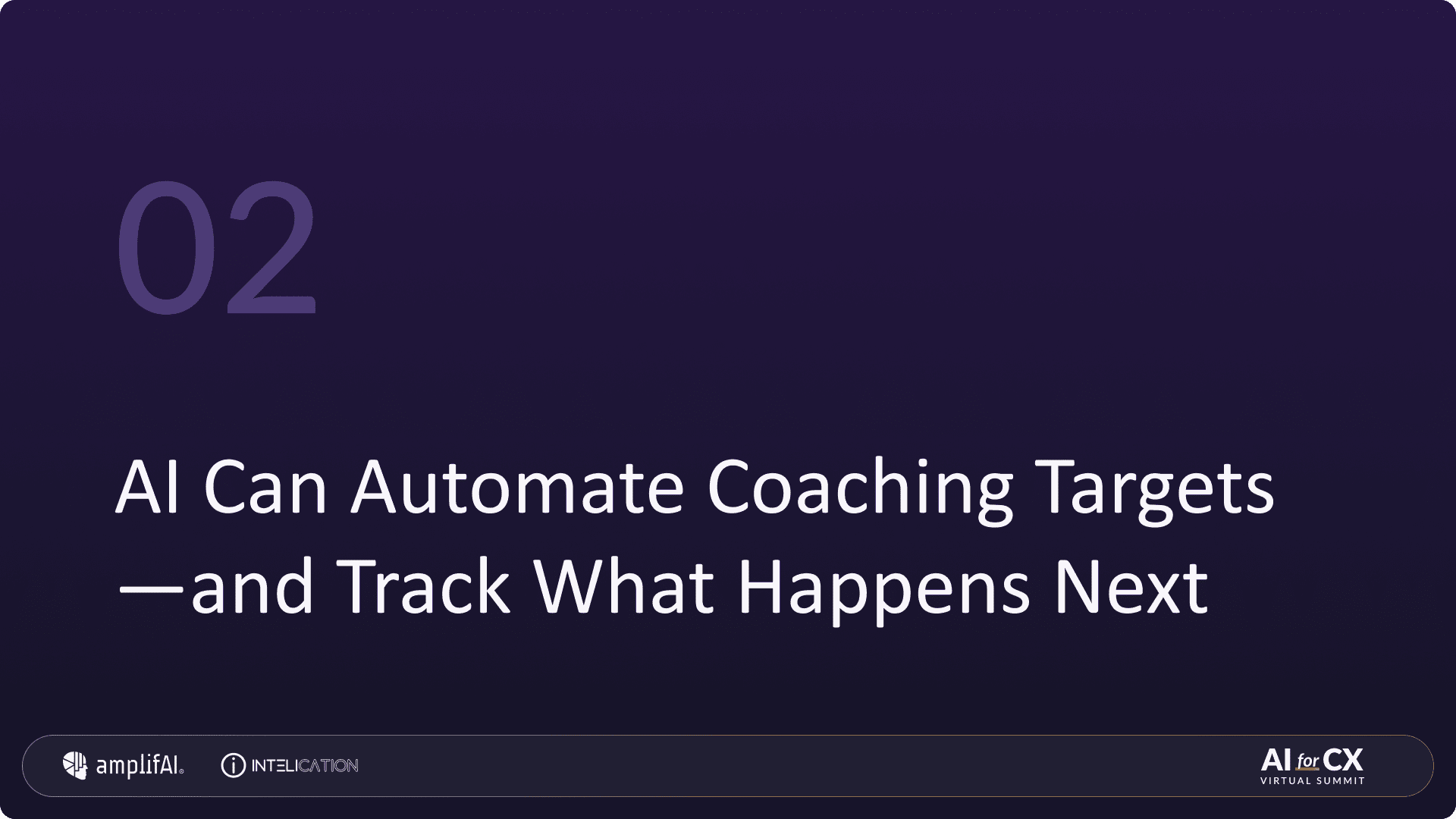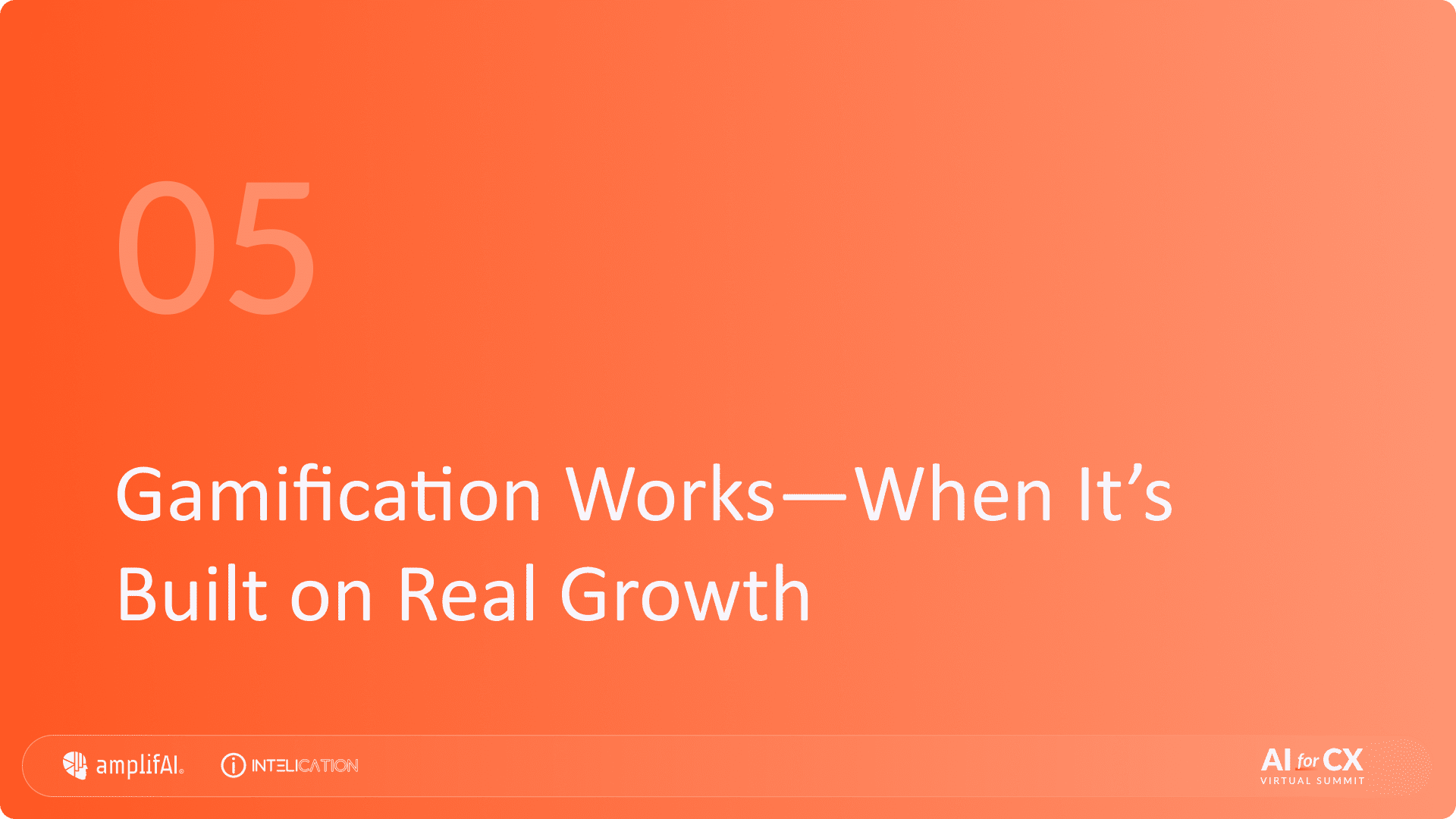

AI for CX Summit – Day 2 Session 2 Recap
How do you know if coaching is actually working? And if it’s not—how do you fix it?
That’s the question tackled in this high-impact panel discussion at the AI for CX Summit, where leaders from Intelication and AmplifAI came together to explore how AI is transforming the way contact centers manage coaching, agent development, and performance accountability.
Moderated by Scott Logan, Chief Marketing Officer at AmplifAI, the conversation featured insights from three industry experts:
Together, they walked through real-world examples, customer case studies, and emerging best practices for aligning performance data with targeted actions—while freeing managers to focus more on people than process.
This session was designed for CX and contact center leaders looking to:
Whether you’re still using manual QA or already exploring auto QA and AI coaching, this session offered a clear path forward for developing your teams faster—with less guesswork and more impact.

Many contact centers track how often coaching happens, but very few track if it works. That’s a problem.
As Stephanie Rubin noted, forward-thinking teams are starting to connect coaching to real outcomes—tracking performance changes post-session using sentiment, QA scores, CSAT, and more. The most advanced are even measuring a “coaching delta”—the change in performance pre- and post-coaching—to pinpoint what’s improving and what’s not.
“If agent performance isn’t improving after consistent coaching, maybe the issue isn’t the agent.”
— Stephanie Rubin, Intelication

With the rise of auto QA and AI-based scoring, leaders now have objective, real-time visibility into agent behaviors—tone, empathy, compliance, and more. That same data can be used to:
Lauri Stanek shared examples of BPO and telecom clients using AmplifAI to connect frontline data to coaching tasks—resulting in measurable lifts in First Call Resolution (FCR), AHT, and overall customer experience.
“We’re moving from whack-a-mole coaching to targeted development based on actual performance data.”
— Lauri Stanek, AmplifAI

Traditionally, leaders gave agents 30–60 days to improve with little personalization. AI is changing that.
Calli Wright described how smart platforms can now calculate realistic timelines for improvement based on:
This allows managers to set glidepath goals—smaller, achievable milestones toward proficiency—and course-correct mid-cycle when performance veers off track.
“It’s not just coaching better—it’s coaching smarter. AI helps us do both.”
— Calli Wright, Intelication

“Your empathy score is low” doesn’t tell an agent what to do differently.
AI now enables leaders to pinpoint which behaviors need work—such as reflective listening or escalation handling—across 100% of interactions. This helps supervisors skip manual review and go straight to development.
Lauri also emphasized how integrating LMS content into coaching workflows creates a full-circle learning experience—tying metrics to behavior, behavior to training, and training to results.
“Let the technology do the heavy lifting so you can spend time actually developing your people.”
— Lauri Stanek, AmplifAI

Games are great—but only when tied to real goals.
As Stephanie explained, novelty wears off fast when agents realize they’re earning points for speed, not quality. The most effective gamification strategies:
AmplifAI clients have seen improvements in both agent satisfaction and performance by combining data-driven coaching with gamified progress—especially for mid- and low-performers who may be overlooked in leaderboard-only models.
“The best gamification strategies aren’t just fun—they’re functional. They build careers, not just dashboards.”
— Stephanie Rubin, Intelication
This session reinforced a clear message: data-first coaching works—if you measure the right things. AI gives leaders the tools to:
But you need the right systems and partners to make it all work.
“You can’t manage performance if you’re not measuring coaching. The most impactful leaders are using AI not just to analyze agents—but to develop better coaches too.”
— Lauri Stanek, AmplifAI
